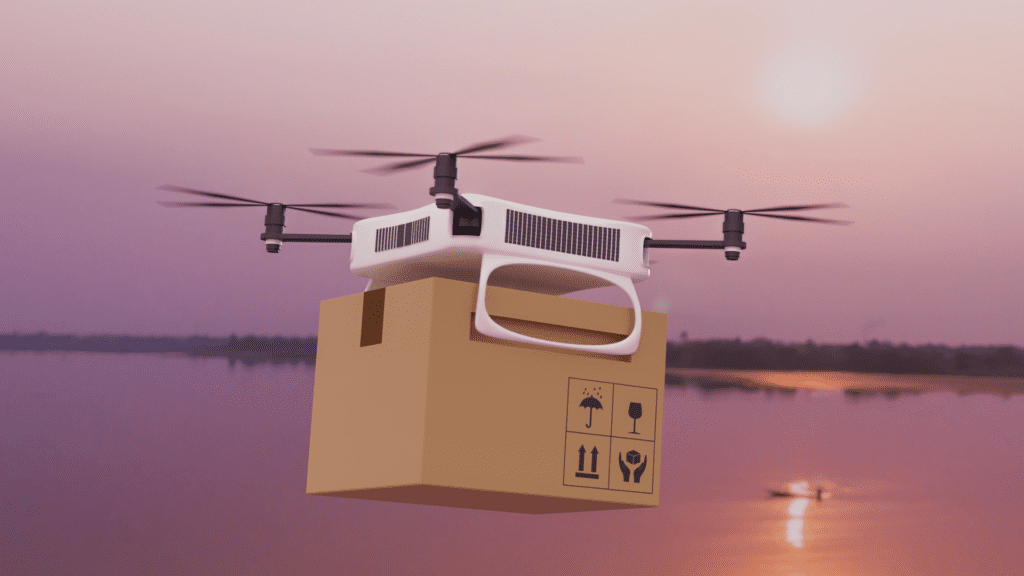The logistics industry is constantly evolving. New technology and innovations are transforming the way we ship goods around the world. In the nearest future, what has been the traditional way of shipping will possibly be enhanced by technology. Ahead, we will take a look at the influential innovations that will be shaping the future of logistics.
1. Blockchain Technology
Blockchain is best known as the technology behind cryptocurrencies like Bitcoin, but it also has potential applications in logistics. With blockchain, businesses can track their shipments in real-time and verify the authenticity of goods. This could help to reduce counterfeit products and fraud in the supply chain. The cost of trade documentation, however, is estimated to be around one-fifth of the shipping process, so it would make sense to use this technology. Of course, this type of technology will also incur an up-front cost to implement and establish. But the benefits of Blockchain are worth it.
In 2021, IBM and Maersk announced a partnership to test blockchain solutions for the global supply chain. The solution will be put into production later this year and will help secure the supply chain against human error, cyber threats, and unwanted delays. However, it is unclear if this solution will be able to improve the current system of global shipping.
2. Drones
Drones are already being used for deliveries in some parts of the world, and it’s likely that this will become more common in the future. Drones can transport goods to remote locations quickly and without damage.
3. Augmented Reality
Augmented Reality (AR) is being used more and more in logistics to help with tasks such as picking items from shelves or loading containers onto the flatbed trailers or the dry van trailers. AR can also be used for training purposes so that workers can learn how to do their job before they even start work.
4. Internet of Things (IoT)
The Internet of Things (IoT) is the name given to the growing network of physical objects that are connected to the internet. In logistics, IoT can be used to track shipments, monitor vehicle maintenance, and even route vehicles automatically, allowing shipping companies to make informed decisions based on current conditions. Using the Internet of Things can also reduce fuel consumption and carbon emissions by determining the most efficient routes. This technology can also help prevent spoilage and waste, which is critical in the food and beverage industry. For these reasons, IoT will change the way we ship goods in the near future.
5. 3D Printing
3D printing is already being used in some areas of logistics, such as creating prototypes or spare parts on demand. In the future, it could be used for manufacturing products directly from raw materials, which would greatly reduce lead times.
6. Autonomous Vehicles
Autonomous Vehicles are those that can drive themselves without the need for a human driver. This technology is already being developed by major car manufacturers and could have a huge impact on the logistics industry.
7. Robotics
Robotics is another area where there have been significant advances in recent years. Robotics is being used more and more in warehouses to carry out tasks such as picking orders or loading goods onto the trailers which are used to transport large or heavy objects. Among other benefits, robotics could streamline pallet handling by automatically identifying items in warehouses. Robots could be programmed to perform different tasks, such as picking up and rearranging shelves. And since robotics can be remotely monitored and controlled, the logistics industry can expect better accuracy and agility in the preparation and delivery of shipments.
8. Big Data
Big Data is a term used to describe the large volumes of data that are now being generated by businesses and organizations. This data comes from a variety of sources including social media, sensors, and images. Big Data has been described as “data that exceeds the processing capacity of conventional databases.” In the past, organizations that collected this data had difficulty processing and analysing it effectively. However, new technologies and approaches, such as Hadoop and cloud computing have made it possible to process and analyze large volumes of data quickly and cheaply.
Related posts
